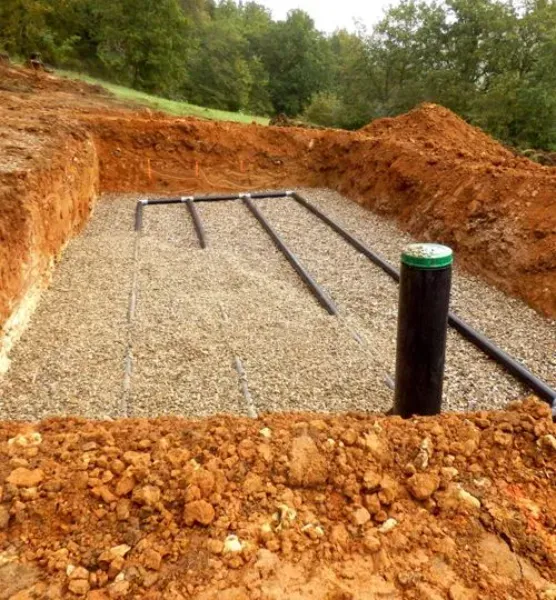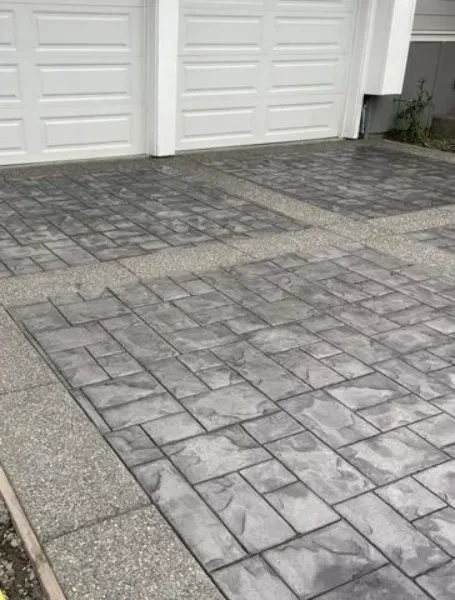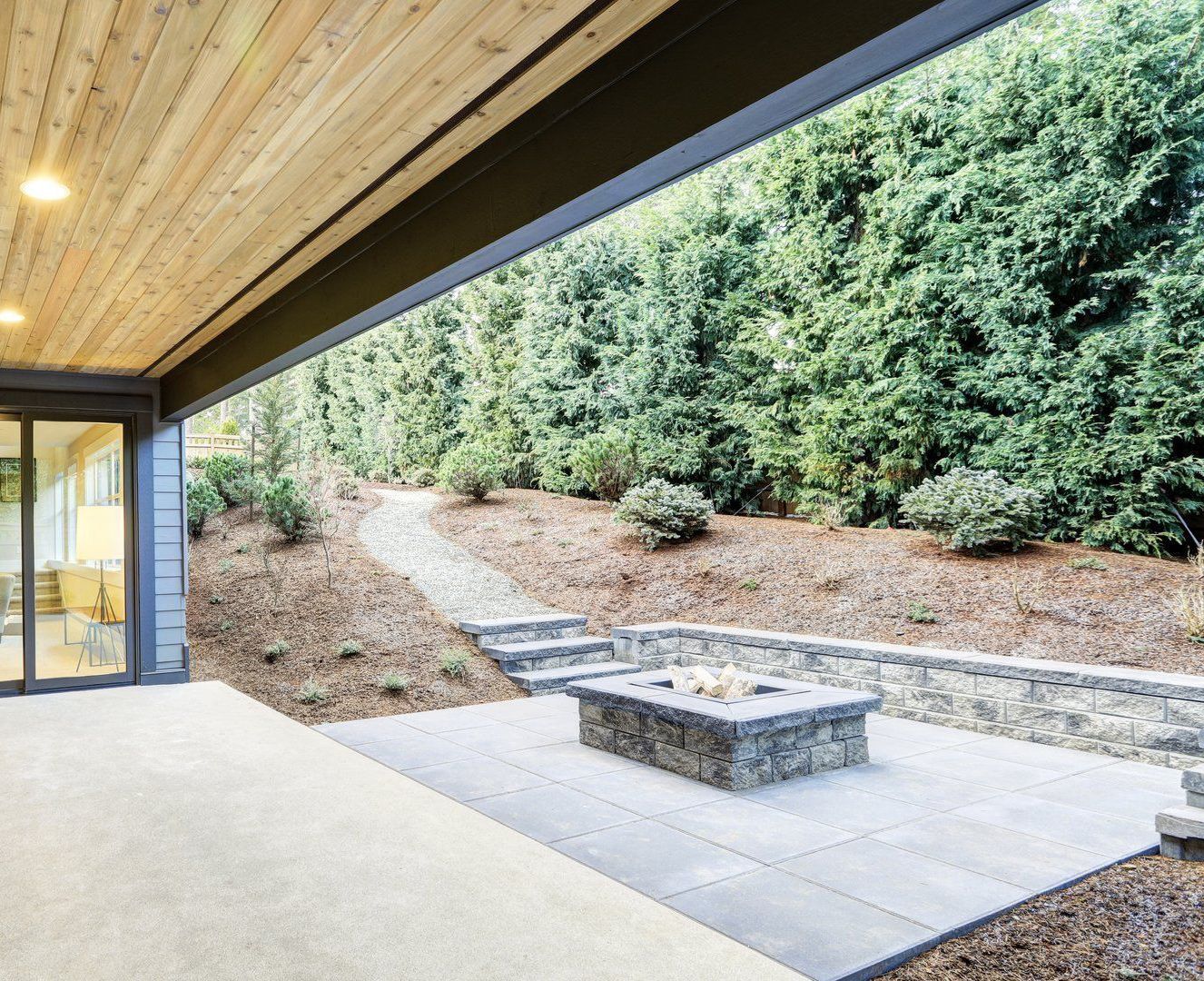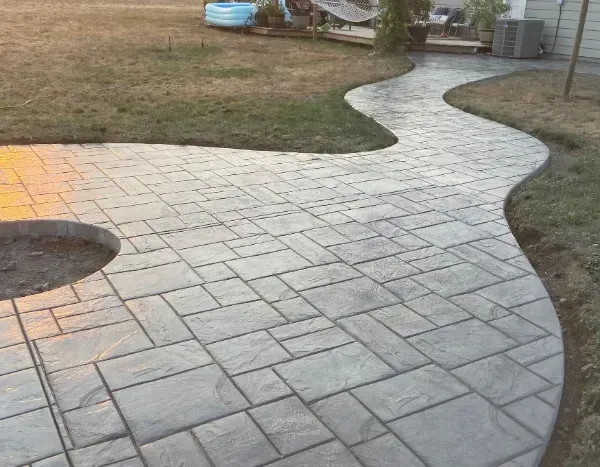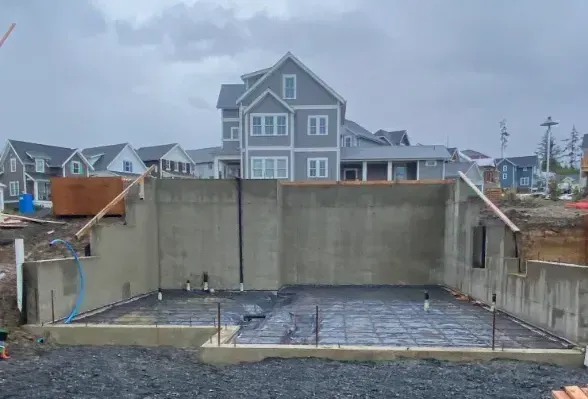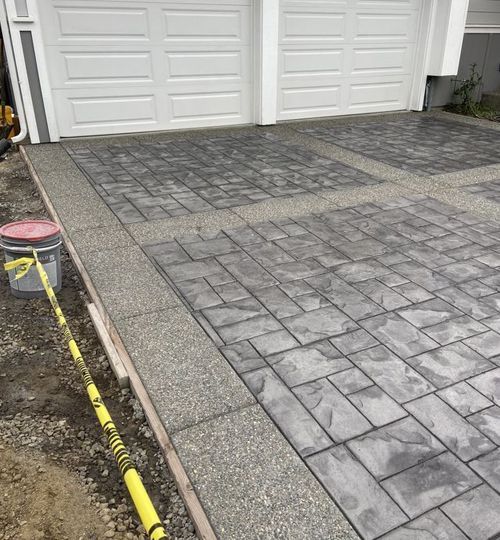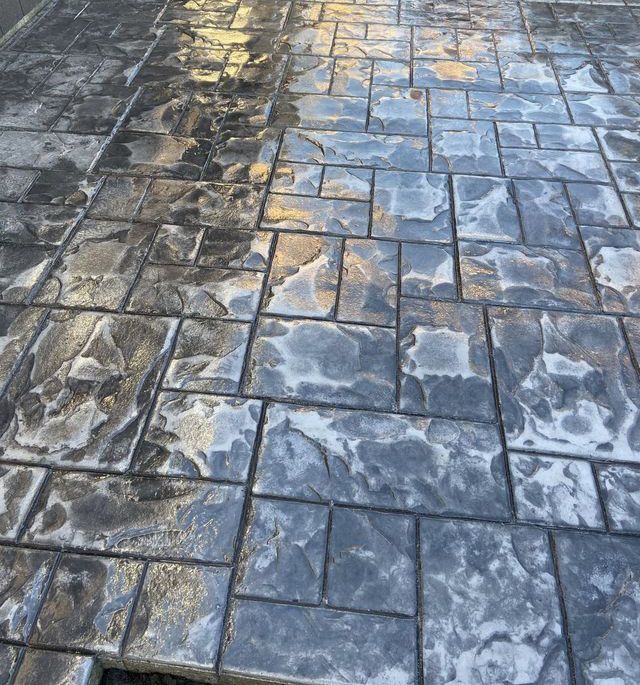1363 Old Israel Rd SW , Tumwater , WA 98512
Effective Drainage System Tips for Your Property Maintenance
Why Choosing the Right Drainage System Matters
A well-designed drainage system is essential for protecting your property from water damage. Without proper drainage, rainwater can accumulate around foundations, seep into basements, or create standing water in your yard. Over time, this excess moisture leads to structural issues, mold growth, and costly repairs. Addressing drainage problems early ensures your home stays dry and secure.
Beyond preventing damage, an effective drainage system improves landscaping, prevents soil erosion, and enhances curb appeal. Properly managing water runoff keeps outdoor spaces functional and helps maintain property value. Investing in a reliable solution today can save you from expensive issues down the road.
Understanding Your Property’s Drainage Needs
Selecting the right drainage system starts with understanding how water moves across your property. After a heavy rain, take note of pooling water, erosion, or overly saturated areas. These problem spots indicate where drainage improvements are needed to prevent long-term damage.
By tracking water flow in different conditions, you can determine the best placement for an effective drainage system. A well-planned solution will redirect excess water efficiently, protecting your landscaping, foundation, and outdoor spaces from costly repairs and deterioration.
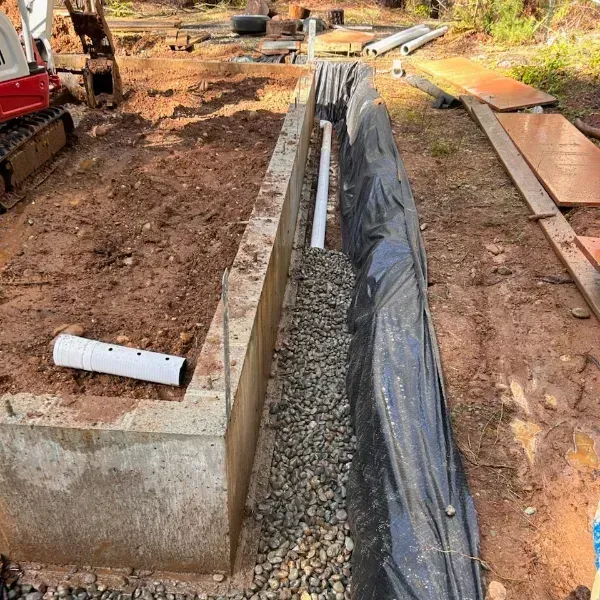
How Soil Type Affects Drainage System Selection
Understanding your soil type is key to selecting the right drainage system for your property. Different soils handle water differently, impacting how efficiently excess moisture is managed.
- Sandy Soil – Drains quickly but can lead to erosion. Permeable surfaces or strategically placed barriers help slow water movement.
- Clay Soil – Holds water, increasing the risk of pooling. Solutions like French drains or grading adjustments improve drainage.
- Loamy Soil – Combines sand, silt, and clay in just the right proportions, making it one of the most versatile soil types. While naturally well-draining, it still benefits from strategic water management.
To test your soil, dig a hole, fill it with water, and observe how fast it drains.
Assessing Yard Slope and Its Impact on Drainage
Water naturally follows the path of least resistance, making slope evaluation essential when designing a drainage system. Even a gentle incline can influence how water accumulates or disperses. A simple way to check your yard’s slope is by using stakes, string, and a level to measure elevation changes.
For flat areas prone to pooling, underground solutions like French drains help redirect excess water. In sloped landscapes, swales or terracing can control runoff and prevent erosion. Choosing the right drainage system ensures proper water flow, protecting both your home and landscape from long-term damage.
The Role of Climate in Choosing a Drainage Solution
Climate plays a crucial role in selecting the right drainage system, as different weather conditions present unique challenges. Understanding your region’s climate helps determine the best way to manage water flow and prevent long-term damage.
- Rainy Climates – Frequent storms require efficient drainage solutions like French or trench drains to prevent pooling, erosion, and foundation damage.
- Dry Climates – Occasional heavy rains can cause sudden runoff, making catch basins essential to control water flow.
- Snowy Climates – Freeze-thaw cycles demand drainage systems designed to prevent ice buildup and cracking, ensuring water moves away safely during spring thaw.
Popular Types of Drainage Systems for Homeowners
Every property has unique drainage needs, and choosing the right drainage system prevents water damage and erosion. The best solution depends on factors like soil type, slope, and rainfall levels.
- French Drains – These underground pipes redirect excess water away from saturated areas, making them ideal for yards with poor drainage.
- Dry Wells – Used where runoff cannot be directed off-site, dry wells collect and slowly disperse water underground.
- Channel Drains – Installed in driveways, patios, and walkways, these surface drains prevent standing water and protect hardscapes.
Selecting the right drainage system ensures water flows efficiently, protecting both your landscape and home’s foundation.
Pros and Cons of Surface Drainage vs. Subsurface Drainage
Choosing between surface and subsurface drainage systems depends on your property’s specific water management needs. Surface drainage systems are easy to install and cost-effective, making them ideal for managing mild runoff. They allow for quick water redirection but can disrupt landscaping and may not handle heavy water flow efficiently.
On the other hand, subsurface drainage systems, such as French drains, are hidden underground and designed for long-term water management. They efficiently handle large volumes of water without affecting the property’s appearance. However, they require excavation, are more expensive, and often need professional installation. Combining both methods can create an effective, long-lasting drainage solution.
Tips for Maintaining Your Drainage System Long-Term
A well-maintained drainage system keeps water moving efficiently and prevents costly damage. Surface drains should be cleared of leaves, dirt, and debris to avoid clogs that lead to standing water. Subsurface systems, like French drains, need periodic inspections to ensure pipes remain unobstructed and functioning properly.
After heavy rain or seasonal changes, a professional evaluation can identify small issues before they escalate. As the saying goes, “Drainage maintenance is like brushing your teeth—do it regularly to avoid big problems!” Regular maintenance helps safeguard your property from costly water damage and soil erosion.
Common Drainage Mistakes and How to Avoid Them
Overlooking your yard’s slope or choosing a drainage system unsuited to your soil can cause long-term structural damage. Poor drainage leads to erosion, pooling water, and foundation issues—problems that become costly if left unaddressed. Regular maintenance is just as important, preventing blockages that reduce system efficiency.
Many homeowners underestimate the impact of proper drainage planning. A well-designed system, matched to your property’s unique conditions and maintained over time, protects against water damage and preserves your landscape’s integrity. Taking proactive steps today can prevent expensive repairs down the road.
When to Call a Professional for Drainage Installation
Some drainage issues go beyond quick fixes. If water lingers in your yard after light rain, soil remains saturated, or doors and windows stick due to shifting foundations, your property may be at risk for serious structural damage. Addressing these warning signs early can prevent costly repairs down the road.
Northwest Concrete provides expert drainage solutions in Tumwater, ensuring durable installations backed by long-term warranties. Professional assessment and precision work protect your home’s foundation and landscape while saving you money in future repairs. Call
360-529-9961 today to discuss the best drainage system for your property.
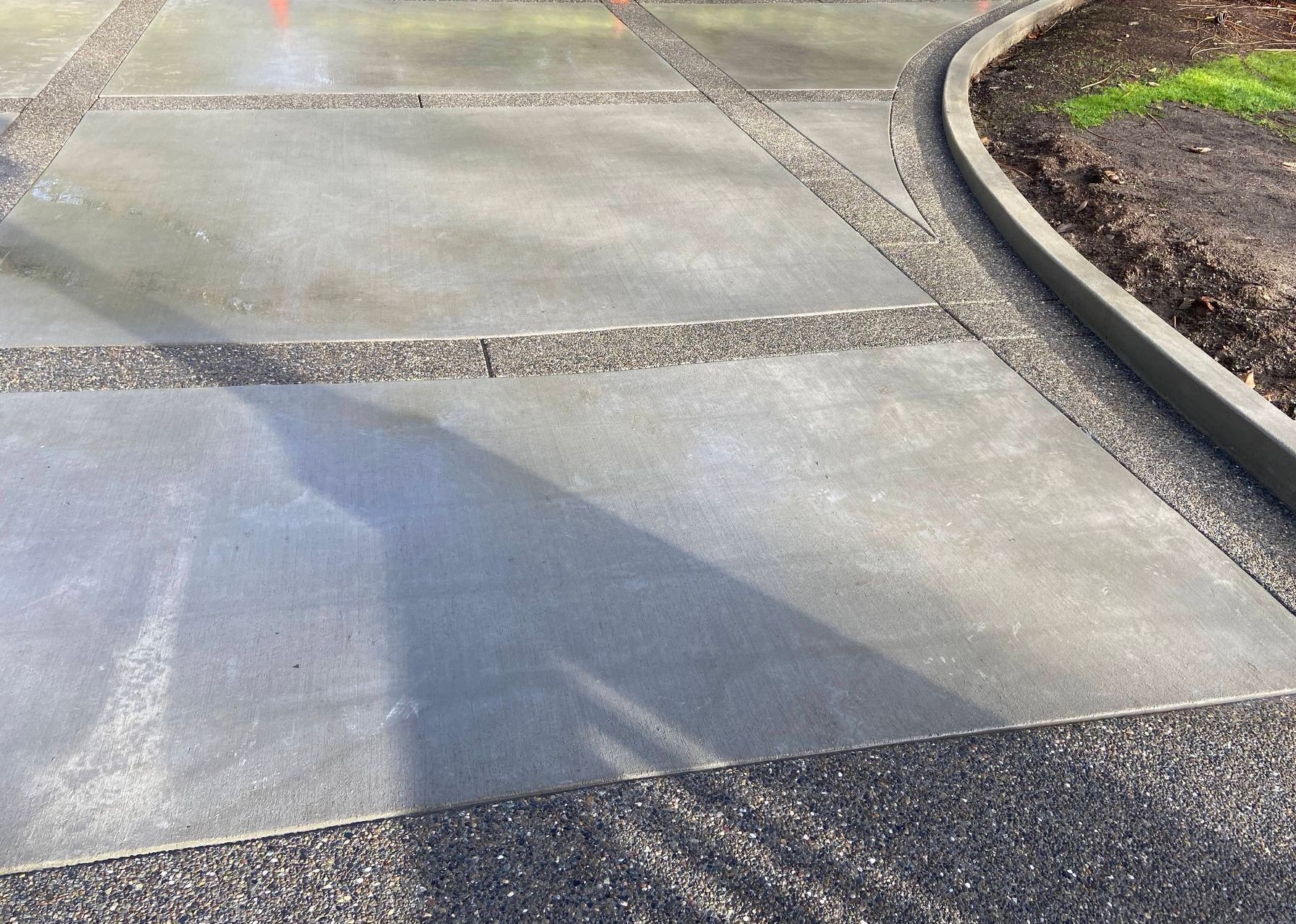

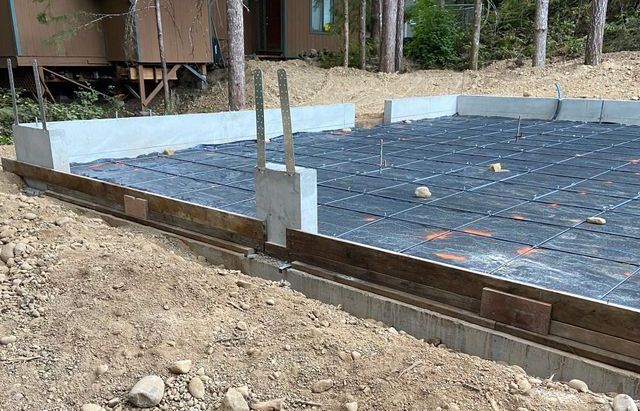
CONTACT US
We will get back to you as soon as possible.
Please try again later.
AREAS SERVED
Tenino
Centralia
Lakewood
Dupont
Steilacoom
Roy
Littlerock
NORTHWEST CONCRETE
Tumwater, Washington and the surrounding areas
Images provided on this website are for personal, non-commercial use. Republication, retransmission, or reproduction of images provided is strictly prohibited.


